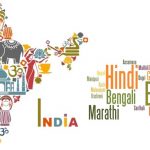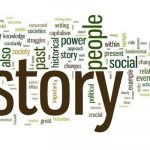Hyderabad is the capital and largest city of the Indian state of Telangana. It occupies 650 square kilometers (250 sq mi) along the banks of the Must River, located on the Deccan Plateau In the northern part of South India. At an average altitude of 542 metres, much of Hyderabad is situated on hilly terrain […]
History
Hyderabad City History: School Projects
Academic projects (ICSE class X) on the city of Hyderabad. About Hyderabad City The city of Hyderabad was established in the year 1591 by Muhammad Quli Qutb Shah, and remained under the rule of the Qutb Shahi dynasty for nearly a century before the Mughals captured the region. In 1724, Mughal viceroy Asif Jah I […]
Bal Gangadhar Tilak
Bal Gangadhar Tilak, commonly known as Lokmanya Tilak (23 July 1856 – 1 August 1920), was an Indian nationalist, teacher, and an independence activist. Tilak was one of the first and strongest advocates of Swaraj (“self-rule”) and was quite radical in his views. Tilak joined the Indian National Congress (INC) in 1890 and was among […]
Dadabhai Naoroji: The Grand Old Man of India
Dadabhai Naoroji (4 September 1825 – 30 June 1917), also known as the “Grand Old Man of India” was an Indian Parsi scholar, trader, and politician, who spent most of his time in Britain. He was the first Asian to become a British MP and was a member of Parliament (MP) in the United Kingdom […]
Indian National Congress (INC)
The Indian National Congress (INC) was formed in the year 1885 in order to provide a platform for civil and political dialogue among educated Indians. Long before the INC was formed, leaders like Dadabhai Naoroji could see through the sinister plans of the British and how they were draining India of her wealth. INC was […]
Indian National Movement: Summary
The Indian National movement started with the formation of the Indian National Congress (INC) in 1885. The first phase, period between 1885-1905, was also known as the Moderate phase. While everybody agrees on the distinction of the first (early) phase, ther eis a bit of amiguity concerning the period after the first phase until independence. […]
Lala Lajpat Rai
Popularly known as Punjab Kesari (Lion of Punjab), Lala Lajpat Rai (28 January 1865 – 17 November 1928) played a pivotal role in the Indian Independence movement. Right from his childhood, he had the desire to serve his country and took a pledge to free it from foreign rule. In 1880, Lajpat Rai joined Government […]
Netaji Subhash Chandra Bose: Role in Indian Independence
Subhas Chandra Bose (also called Netaji) (23 January 1897 – 18 August 1945) was an Indian freedom fighter who played an important role in India’s independence movement, and his defiant style of patriotism appealed to many in India. A participant of the noncooperation movement and a leader of the Indian National Congress, he was part […]
‘Moderates Phase’ (1885 and 1905): First phase of Indian national movement
The period 1885-1905 (1885-1907 in some cases) is considered by many as the first or the early phase of Indian National movement; it is also referred to as the Moderate Phase. In this phase, the Indian National Congress (INC) was led by early political leaders, also called as Early Nationalists. They were educated, open minded, […]
Constitution of India: Key Points
Right to Equality under Indian Constitution There are certain fundamental rights of an accused person under the constitution of India. These rights are given to all, irrespective of the fact if a person is accused of a crime. Our constitution is based on fundamental that “Let hundreds go unpunished, but never punish an innocent person”. […]
Centre-State (Union-State) Relations in India
India has a federal form of government in which there is one government at the centre and every state has its own government. The constitution of India clearly specifies the functions and powers to mobilize resources of the union and the state governments. As far as functions are concerned there is a threefold classification. There […]
AD and BC: Understanding the Dates
BC/BCE and AD/CE timelines explained. Understand how the various conventions are used to denote time in history. In academic work, most of the time you will come across dates (years) that will be written as 2000 AD, 500 BC, and so on. So what is the AD and BC when it comes to years? Let’s […]
Democracy
Democracy is a government that is elected and run by the people. In a democracy, people voice their opinions by voting for people who they think should lead the government. Every person who is 18 years of age has the right to vote. Where did the idea of democracy originate? The term democracy comes from […]
History of India: Resources
History of India: Useful links and resources. Talk about the compositions of Bhas (Bhasa). What is the subject matter of the Puranas? Please mention the historical importance of Epics. Who was Harishen? Why Prayag Prashasti is important in India’s history. ‘Baburnama is a winner’s memoir’ Make it clear Describe the role of religious Scriptures as […]
Coinage of India
Ancient Indians were among the first to introduce coins to the world (along with the Chinese). The earliest reference of coins can be found in the vedas. Early Coinage The first Indian coins were called Puranas, Karshapanas or Pana. They were minted in the 6th century BC by the Mahajanapadas or kingdoms of ancient India. […]
Indus Valley civilization
The Indus Valley civilization was one of the greatest civilizations of the world. It developed along the Indus river in modern-day India and Pakistan. Where was the Indus volley civilization located? The Indus civilization consisted of large settlements planned and built along the banks of the Indus river. Around 2600 BCE, there were more than […]
India is officially called the Republic of India
India is officially called the Republic of India. Though, India became a free country on 15th August, 1947, it became a Republic when it adopted the constitution. When did India become a Republic? India became a Republic on 26th January, 1950. the Indian National Flag was hoisted at Irwin Stadium in Delhi and a salute […]
Why you need to know about India’s President Sarvepalli Radhakrishnan on Teacher’s day
It was in 1962 that the birthday of former President professor Sarvepalli Radhakrishnan was first observed as Teachers’ Day on September 5. Dr Radhakrishnan was the President of India, the vice-president and the Indian envoy to the Soviet Union; but above all, he was a philosopher and a teacher. Here are top things you should […]
National anthem “Jana Gana Mana”, meaning of the words explained
We all know our national anthem is “Jana Gana Mana” but do you know the meaning of all the words? Here’s more about India’s national anthem. The original national anthem song was written by Rabindranath Tagore in Bengali, which was then translated into Hindi and Urdu by Abid Ali. It was again translated to the […]


